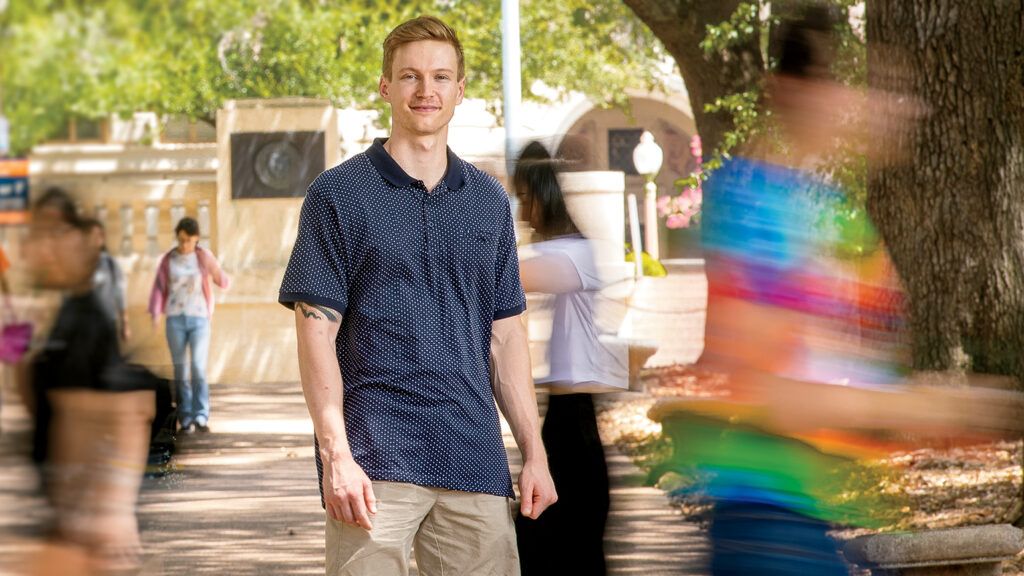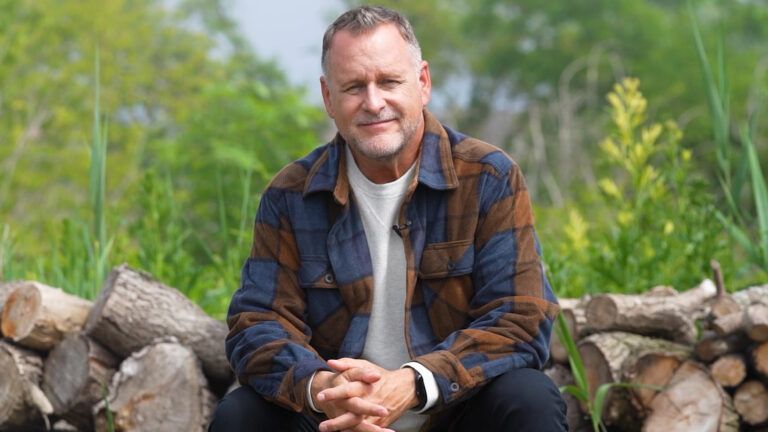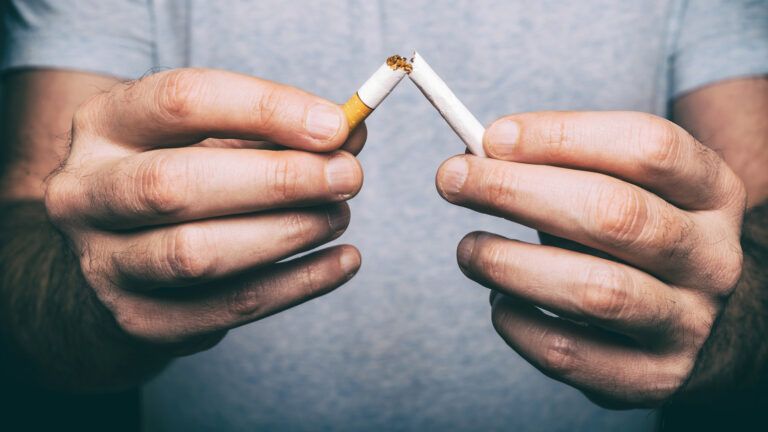Most people are just starting adult life in their twenties. I feel as if I have lived a lifetime already.
I took my first drink when I was 14. I was an alcoholic before I graduated high school. I was kicked out of one college and dropped out of another. Along the way, I got arrested for public intoxication and driving under the influence. Four months after the DUI, I was fired from my job at a fast-food restaurant. I was close to broke. My parents had run out of ideas for trying to help me.
I was 21. Alcohol had crippled my life before I was old enough to drink legally.
How did I sink so low so fast? How did I climb back up?
I hear those questions a lot in my current job as an administrator at a sober living facility in Austin, Texas, called Alpha 180, which specializes in people like me: young adults whose lives were being wrecked by drugs or alcohol.
The residents of Alpha 180 come from many backgrounds. We all have one thing in common: We once thought of drugs and alcohol as harmless rites of passage for teens and young adults.
We found out the hard way that, for people prone to addiction, the real rite of passage is learning to live an adult life without the crutch of intoxication. It’s a lesson I wish I’d learned a long time ago. I’m grateful that in my new life and my work, helping people like me, I’m getting to grow up at last.
There’s no obvious reason why I became an alcoholic. I grew up in a stable, happy family with loving parents. Dad was an accountant. Mom stayed home with me and my younger sister, Sara. Church was a big part of our lives. I went to a small Christian private school.
Despite all those good things, I somehow became convinced that drinking was a sign of grown-up sophistication. In middle school, I had a vague sense that somewhere out there all the cool kids were drinking and having a great time. I wanted in on that.
One day, I reached into my parents’ liquor cabinet and pulled out a bottle of vodka. My parents hardly ever drank. Mostly the small cabinet in the living room stayed shut.
I uncapped the vodka bottle and took a sip. Disgusting! I choked and nearly spit it out.
And yet, at the same time, I tasted liberation in that vodka. Freedom from my 14-year-old insecurities. Access to that cool grown-up life I’d envisioned. I took another drink and another until I was buzzed. That feeling I liked a lot. I hit the liquor cabinet more times before discovering there really were cool (to me) kids at school who drank. Soon I was partying with them. A few kids’ parents didn’t seem to care what we did, so we drank at their house.
My own parents were clueless. Once, they caught me coming home with alcohol on my breath, but I swore it was my first time and promised it would never happen again. They grounded me, but that was all. I kept up with school and other activities, so no one suspected anything.
My problem with alcohol worsened during college. Dramatically. Unsupervised, I drank whenever I wanted. That grown-up life I’d envisioned, surrounded by all the cool people with drinks in their hands? The reality was me sitting alone in my dorm every day, getting wasted and sending drunk text messages to my friends. Really cool, right?
One of those texts got me kicked out of school. I texted something nasty and threatening about a professor, and the text wound up with campus police.
A few hours later, officers were pounding on my door. I was arrested for threatening a faculty member. I couldn’t even remember what I’d written. Administrators told me I could leave the school or face charges. I left.
My parents were stunned but tried to be supportive. They let me live at home while I applied to a new college, Texas A&M. I kept things together until I started school. Then it was back to daily drinking.
I lasted less than a year at Texas A&M. Late one night, I came reeling out of a bar and got arrested for public intoxication. Ten months later, while driving drunk to meet some friends, I blasted through a small town at highway speed and got pulled over. I failed a sobriety test and went to jail.
My parents found an outpatient rehab program. I attended halfheartedly for a week before relapsing. Part of the problem was that most of the other people in the program were older than I was. I convinced myself they were the real alcoholics. I was just a college kid who liked to party.
I can handle this, I told myself. I’d snap out of it after growing up a little—graduating, getting married, landing a great job.
The job I got? Behind the counter at Chik-fil-A.
By this point, I was desperate to stop drinking. I knew I was headed off a cliff.
The cliff came four months later, when Chik-fil-A fired me for coming to work drunk with a bottle of liquor in my pocket.
Why did I do it? Especially when I knew alcohol was wrecking my future? I drank for the same reason all alcoholics drink. Because I was physically addicted and thought drinking would help me cope with the shame of living an alcoholic life. That’s what people in recovery call alcohol-brain. It culminates in shame-based drinking.
I went back to La Hacienda, the rehab facility I’d dropped out of.
“I’m wondering if you take people back,” I asked the woman at the intake desk. I braced myself for a curt no.
“Of course we do,” she said. “It’s great to see you, Ross. Welcome back.”
I was floored. Standing there at the desk I told her everything—how I’d returned to drinking a week into the program, then gotten fired from my job. My voice was heavy with defeat.
Matter-of-factly, the woman told me about La Hacienda’s four-week residential program in a small town about 200 miles from Texas A&M (not far by Texas standards). I decided right there that’s what I wanted.
“We’ve been praying so hard for you,” Mom said when I told her I was going to a treatment center.
Part of me wanted to say, “God doesn’t seem to be answering those prayers.” But that didn’t seem like the right attitude to start recovery.
La Hacienda combines the Alcoholics Anonymous 12-step program with lots of support from treatment professionals—doctors, therapists, nurses—and other participants.
Determined to succeed, I blazed through AA’s steps one and two, admitting I was powerless over alcohol and that only a power greater than me could stop my drinking.
Then came step three: “We made a decision to turn our will and our lives over to the care of God as we understood him.”
What did that mean? I’d grown up in church. Hadn’t I already done that? If praying to God could stop alcoholism, I’d have been sober a long time ago.
“I don’t get this one,” I confided to a therapist.
“It’s not complicated,” he said. “You just have to be willing to do things you know are good for you even if you don’t really want to do them. Trust God to know what’s best and follow his lead.”
Do things you know are good for you even if you don’t really want to do them.
From the moment I took that first drink from my parents’ liquor cabinet, I’d been running away from this simple definition of growing up. I crawled inside a bottle and hid from the complicated emotions and difficult responsibilities of transitioning to adulthood.
“I’m tired of doing this alone,” I said to God. “Help me. I’ll do what it takes, no matter how hard.”
I graduated from La Hacienda, sober but still ashamed and unsure of how to live an actual adult life.
Together with two La Hacienda friends, I moved into a sober living house in Austin. While there I happened to attend an AA meeting at another sober living facility called Alpha 180.
It was a revelation. Everyone in the room was my age. Their stories were my story—underage partying leads to solo drinking leads to train wreck.
“I’m so ashamed,” one person after another said. “I feel like I let everyone in my life down. I want a different future.”
I didn’t know what my own future held, but I felt certain these meetings would help me figure it out. I spent so much time at Alpha 180, the director eventually invited me to apply to become a house manager, overseeing the living quarters and assisting with programming.
Alpha 180 helps residents become responsible adults by mixing service and accountability with opportunities to blow off steam. The house is deliberately located close to the University of Texas campus, in a part of Austin known for drunken parties.
The mission is to be a beacon of sobriety in a place dominated by the idea I once believed—that drinking and drugs are a shortcut to adulthood. We have fun—paintball fights, outings to movies and concerts. But we’re also collectively responsible for running the house, and we’re not afraid to be honest and vulnerable with one another.
I’m still growing up. I recently reenrolled in school, and I’m taking on new responsibilities at Alpha 180, writing for the house’s website and mentoring younger residents.
I’m excited about the future and no longer ashamed. I don’t have to drink to feel grown-up. I’ve been through a rite of passage requiring more change and growth than alcohol’s false promise.
I gave in and let God lead. I accepted the challenge of doing what’s right, even when I don’t want to. I encourage every young addict to embrace those life-giving marks of true sobriety. Of true adulthood.





